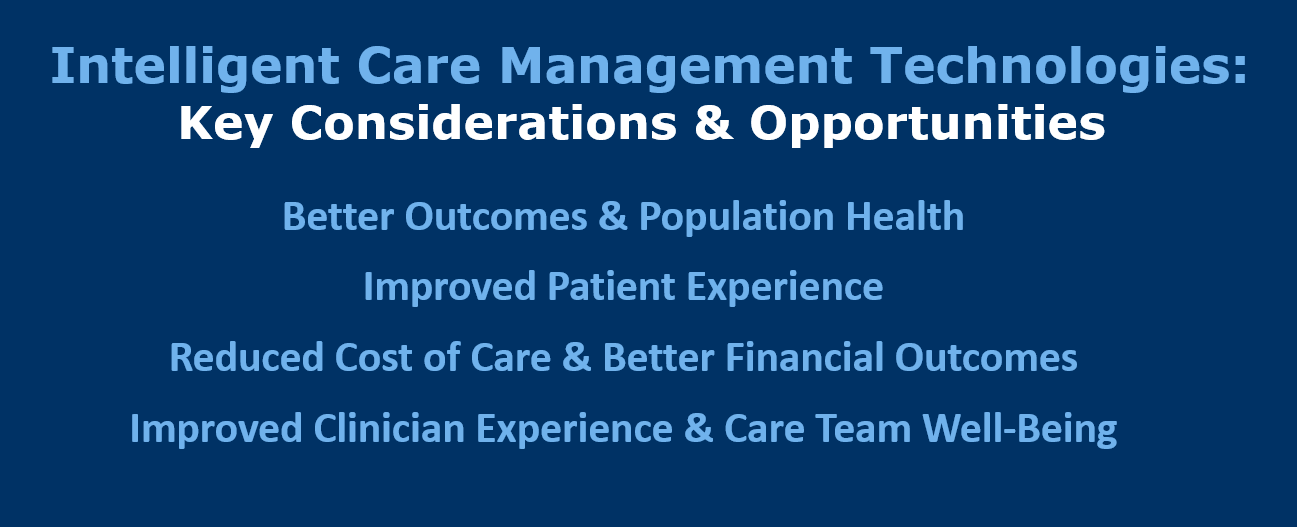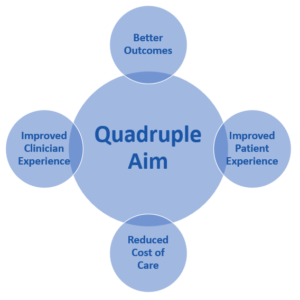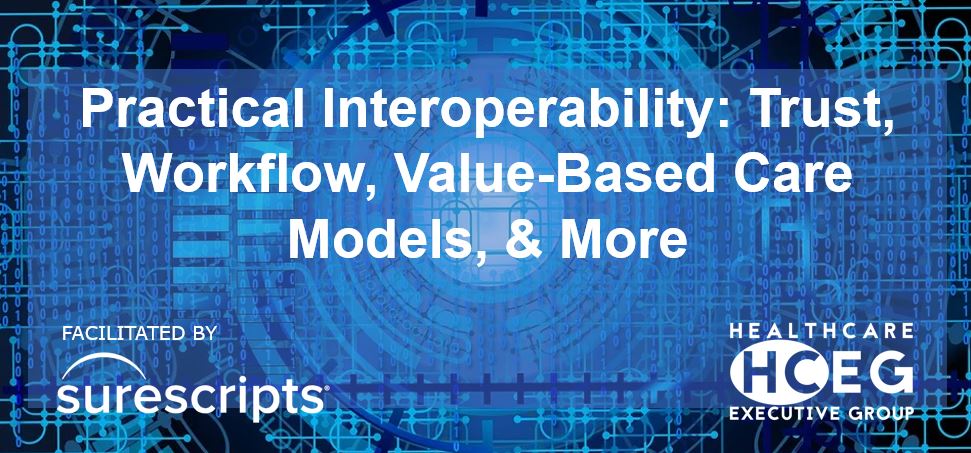
As the healthcare delivery system continues to embrace value-based care and payment models, a number of factors are driving the adoption of intelligent care management technologies by health plans and other payers. Healthcare consumers, patients, and employers are recognizing the importance of whole-person care and demanding more cost-effective, personalized engagement. Traditional service settings are changing with large increases in telehealth and digitally based services. And more and more non-traditional providers are offering medical and non-medical services – often in the home. All these factors – and others – demand an operating ecosystem with intelligent care management that supports scalable collaboration and coordination between all stakeholders.
Collaboration and Coordination: Foundation of Whole-Person, Value-Based Care
A digital ecosystem that supports clinical, financial, and administrative needs of all stakeholders in a collaborative and coordinated fashion is a foundational component needed to deliver whole-person care – whether those services are provided under fee-for-service and value-based care payment models.
No longer is it sufficient for just physicians, clinicians, and traditional care managers to have access to patient information and be involved with care planning and delivery. Nowadays, the patient themselves, their caregivers and family members, and other new types of care coordinators and service delivery organizations must be included. Additionally, multiple administrators and supervisors play increasingly important roles in care planning, service delivery, and post-care coordination and management. The ability to connect, support, and manage all these stakeholders in a collaborative and coordinated fashion is critical.
RELATED: Optimizing Care Management Through Whole-Person Care
Why do Health Plans Need Intelligent Care Management Technologies?
Health plans have historically collected and received patient data from the majority of the care providers their members are seen by. And, starting in January of 2023, the Interoperability and Patient Access final rule (CMS-9115-F) requires providers to send their entire patient medical record to a patient’s current health plan. Based on this history and new regulations, health plans that integrate, support, and scale intelligent care management technologies to support 360º whole-person care – particularly under value-based care models – can advance their market position by incorporating additional data and entities in their care management facilities:
- Social determinants and behavioral health issues
- 3rd party data sources and insights from advanced analytics like machine-learning and artificial intelligence
- Non-traditional entities including community-based organizations and other non-medical service providers
RELATED: Health Plans as Primary Connection for Patients & Healthcare Consumers
Key Components of Intelligent Care Management Platforms
And health plans utilize many different platforms and point solutions to support their members and the provider networks that serve their members. These operating ecosystems are almost always a combination of commercial off-the-shelf, bespoke, and point solutions – and hybrid platforms cobbled together over many years. Regardless of the composition, intelligent care management demands certain core capabilities – all of which should support one or more points of the Quadruple Aim:
Better Outcomes & Population Health
- Built-in utilization management tools with access to a broad set of member/patient data
- First-level assessments that automatically drive subsequent workflows
- Ability to access and coordinate admissions, discharges, and transfers (ADT) events
- Out-of-the-box, configurable, validated assessments incorporating non-clinical risks
Improved Patient Experience
- Ability to manage and maintain close interactions with individuals across every setting of care
- Built-in, HIPAA-compliant services including telehealth capabilities
- Targeted, proven, and personalized approaches to manage the health of various populations on a timely and scalable basis
- Integration with IVR and third-party digital technologies, wearables, and connected devices
Reduced Cost of Care & Better Financial Outcomes
- Multi-source data interfaces and aggregation
- Robust rules engines supporting clinical, administrative, and financial processes
- Intelligent application of robotic process automation (RPA) tools
- Integrated with community resources and non-traditional social determinants data
Improved Clinician Experience/Care Team Well-Being
- Advanced analytics proactively integrated into payer and provider workflows
- Data and services that support and enhance provider care delivery services
- Intelligent insights: event-driven and delivered across the care management continuum
- Automated, workflow-enhancing services/tools – particularly in utilization management and related services
Non-Functional Aspects of Intelligent Care Management Technologies
Realizing the benefit that intelligent care management technologies can deliver is not always an either/or decision and each health plan has unique needs. In addition to the above and other key functionality and considerations, there are several non-functional considerations to consider when evaluating intelligent care management opportunities:
- Timelines for implementation and the ability to rapidly deploy
- Ability to retain and leverage existing data and assets
- Product configuration capabilities
- Ability to swiftly adapt to new business opportunities and stay compliant with evolving regulations
- Potential to incorporate new, best of breed applications
RELATED: Top 3 Capabilities Health Execs Need in Care Management Technology
More About Intelligent Care Management
To learn more about how intelligent care management technologies can help health plans achieve the Quadruple Aim, join us on October 7, 2021 at 12:00 PM PT / 3:00 PM ET for an HCEG Webinar Series event: Intelligent Care Management Technology: Driving Alignment Towards the Quadruple Aim.
HCEG leader Ferris Taylor and Sue Powers, a long-time executive of VirtualHealth, will discuss select intelligent care management technologies and how they can help health plan/payer organizations compete in our rapidly evolving and often uncertain health care delivery system.






